Words by Romina Tello
Pictures by Carlos Hauser
We are experimenting to co-create a more regenerative way of living.
- Diego Dosal
From all of Diego’s vision lines, this one spoke directly to my heart. For years, I had been practicing and preaching a sustainable way of living that some shared in, but not many cared about enough. I guess that’s what made me feel such a strong attraction to Zūnya. “These people are as crazy as you are,” my mother said when I told her I was moving to Costa Rica. And that’s exactly what my world-changing heart was yearning for.
A year into my journey at Zūnya, I feel like we start to walk the talk in terms of “experimenting with regenerative ways of living” - environmentally speaking. I am in charge of designing a waste management culture that shifts our people’s mindsets from seeing waste as garbage to seeing it as valuable resources. We are stepping into a circular economy, and my goal, my experiment, is to have minimal leaks. In other words, to repurpose 99% of our residues.
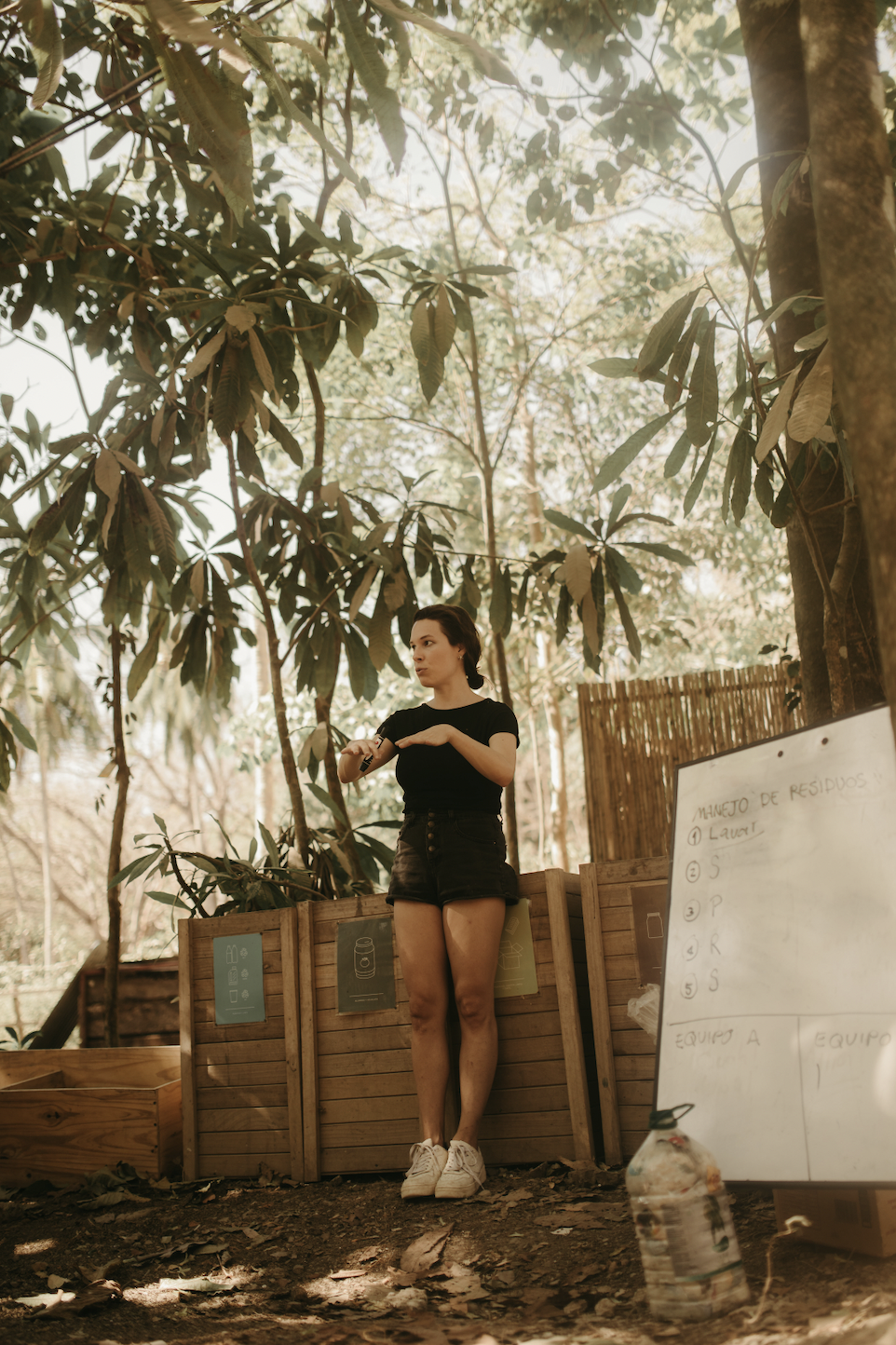
Regeneration requires attention in several areas, yet in August 2021 we chose to start with waste due to the undeniable and painful problem that it represents in the region—the southernmost tip of the Nicoya Peninsula. Six months down the road, and having dug into the issue, I realize that the garbage crisis is a reflection (or an accurate metaphor) of how we deal with our own personal shadows: hiding them where nobody sees them, especially from ourselves.
We choose to work with waste as a way to re-code our mind’s perception of the dark and how we embrace it in order to expand. Like a form of yoga, working on the outer surroundings may heal the inner issues, and vice versa. Regeneration of ourselves goes alongside the regeneration of our environment.
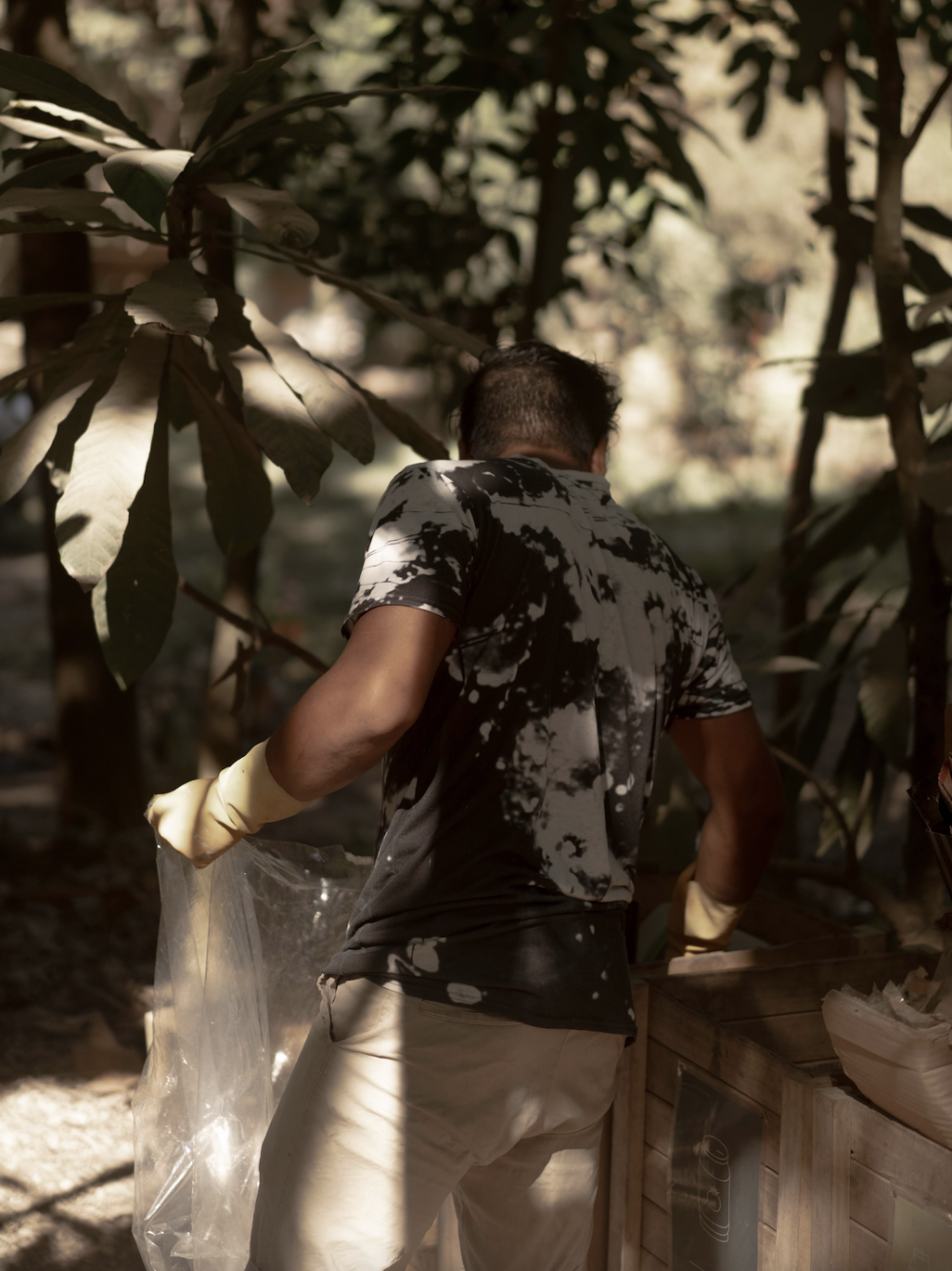
* Positive affirmations: start by referring to waste as residues. It has a different connotation than calling it trash or garbage.
* Managing waste by yourself allows you to understand what you produce and how to start reducing it. Don’t delegate this responsibility to anybody else.
* Sorting waste into its main categories (organic / recoverable / non-recoverable) keeps it clean and functional—no more embarrassing, dirty, & stinky piles.
* There is always enough help & information around you, you just have to look for it. Composting methods that work for you, recycling organizations, & repurposing initiatives are there as long as you have the willingness to find them and the courage to change.
* You cannot do it alone. It requires teamwork. Make sure that everyone in your house or organization understands the new methods as soon as they join your system. The last thing you need is your own people pulling you back or making you work double.
* After 21 days of managing your waste correctly, it becomes a habit.
The truth is that waste doesn’t have to be shameful, dirty, or unsexy. On the contrary, as soon as one is able to acknowledge one's life’s residues and takes full responsibility for them, one becomes proud of its repurposing center and methods. This is the regenerative lifestyle we aim to spread in Zūnya, the families working with us, and the larger community of Malpaís & Santa Teresa.
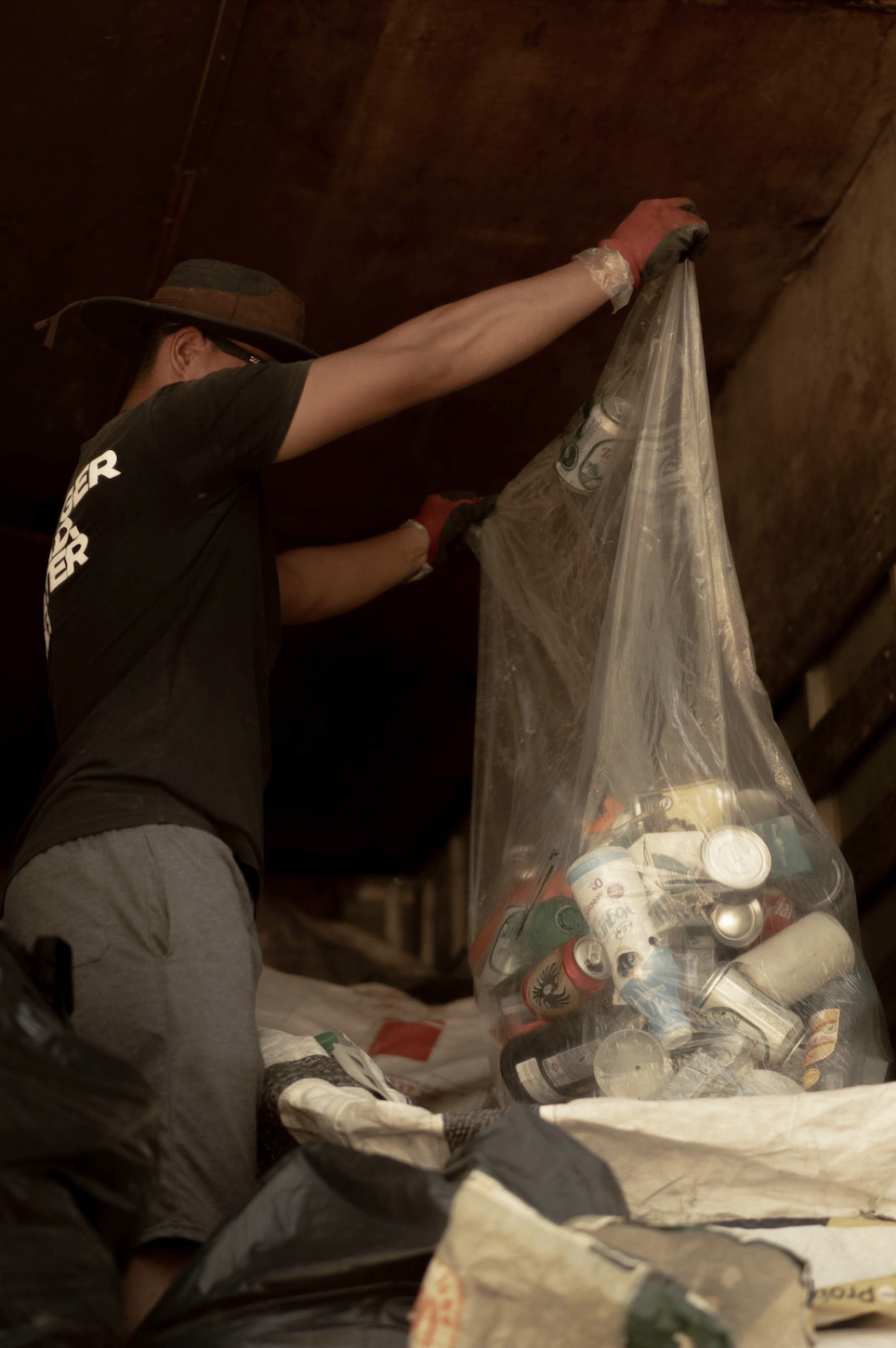
We currently have over 50 people working in Zūnya’s hospitality component, and the lessons that have worked for us as an organization are the same ones that can ignite change in a family household:
- Every department is responsible for sorting, weighing, and disposing of its own waste. There is not a team in charge of doing this task for them.
- We maximize the support systems around us:
- The Nicoya Peninsula Waterkeeper NGO is a crucial local partner for recycling.
- We inform ourselves of other Certified Waste Managers in the zone to deal with non-traditional waste such as septic sludge, construction waste, and electronics.
- We have a team in charge of composting, our Regenerative Landscaping Team, led by a passionate and knowledgeable leader.
- We look for alternatives to repurpose non-recoverable waste. We found ecobricks and art to be two inspiring initiatives to sequester the most annoying of waste: non-recyclable soft plastics & ocean plastic.
- Everybody is invited to play their role. Every new team member receives an induction to our Waste Management Culture, and communication and training efforts are in place in order to reach everyone: Directors, Collaborators, and Guests alike.
- Waste Management tasks are supervised almost daily. We don’t want the habit and momentum to go down.
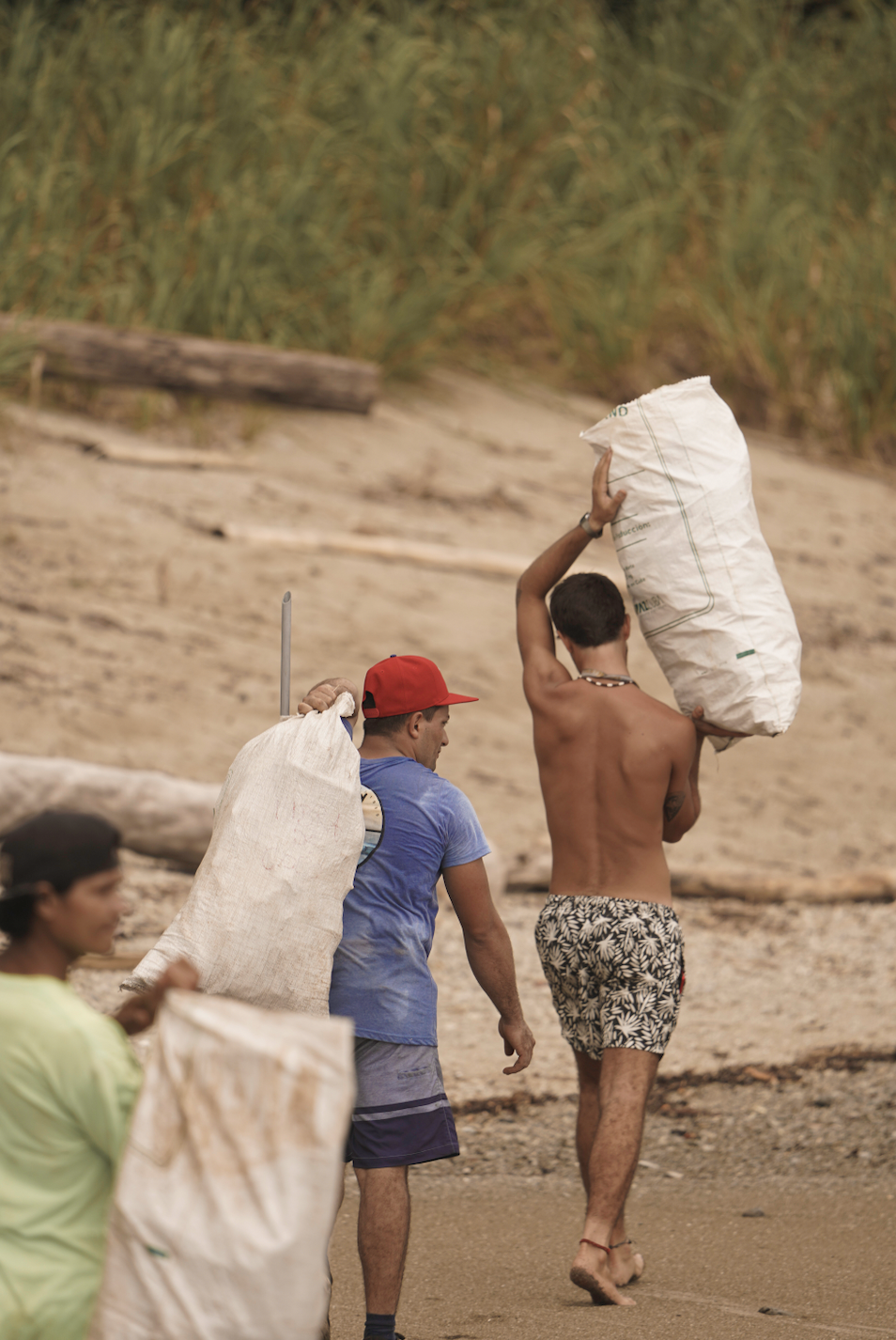
At the organization level, it has been of utmost importance to track what we produce, where it comes from, and what we do with it. This is what our performance looked like over the last 5 months of 2021.
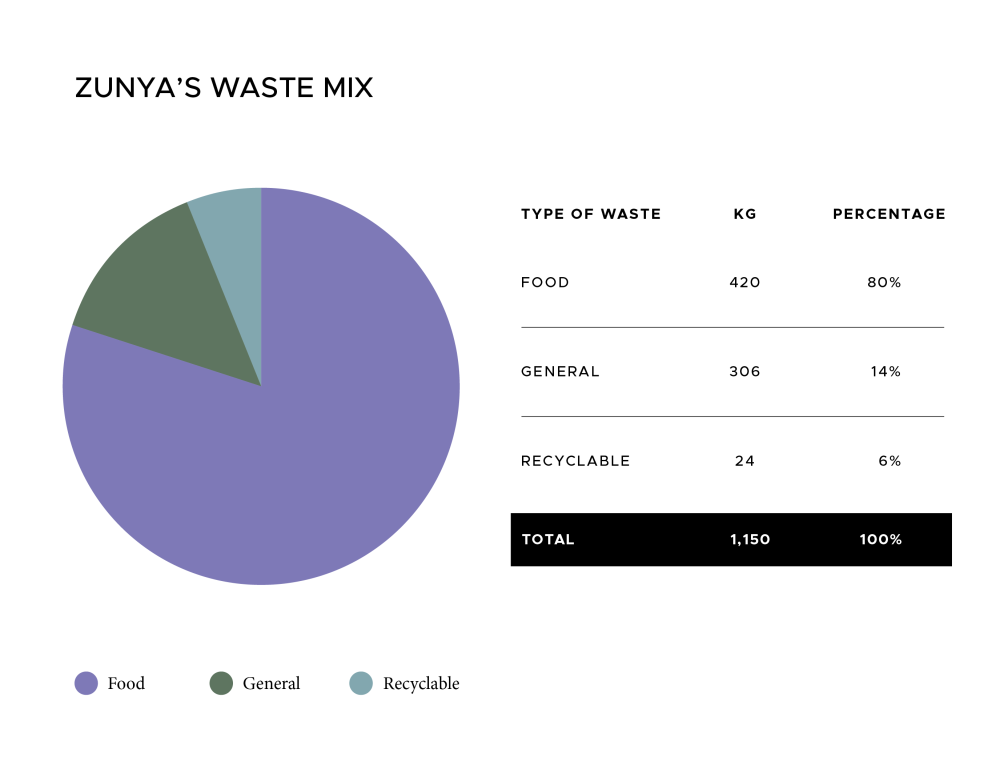
Of the average 1,150 kg of waste generated every month, 86% is repurposed through on-site composting (80%) and recycling (6%). The remaining 14% is currently buried in the landfill of Tecnoambiente, in Miramar, Puntarenas.
Recyclables are shipped to other countries for their final transformation by the NGO Waterkeeper Nicoya Peninsula. Glass, aluminum, and tetra paks are handled regionally in Guatemala, while plastics are sent to the material-engineering company BIONIC in Mexico (HDPE) and Taiwan (PET).
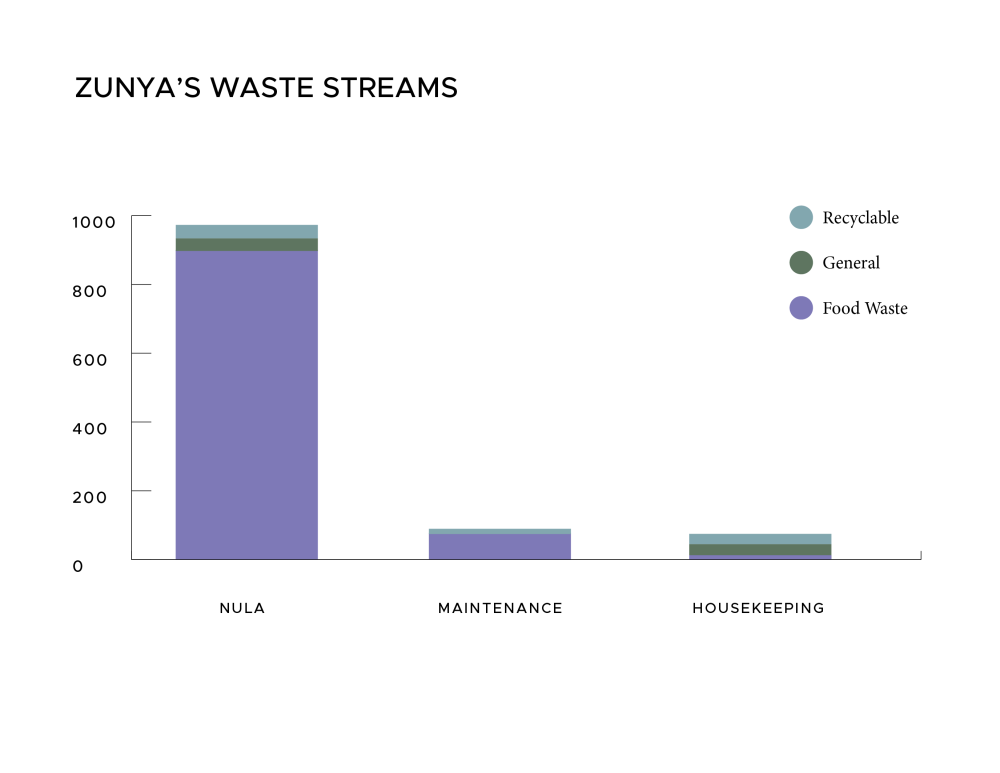
Nula makes up for most of Zunya's operational residues, with a monthly average of 900 kg of compostable residues. However, the most harmful waste—non-recoverable—comes from maintenance, workshops, and guests’ common areas, accounting for 80 kg of general waste per month.
We started 2022 determined to make a difference in our land and community, improving the processes that we’re starting to master and going beyond to experiment on systemic change.
This year we are developing a beautiful, organized, and attractive waste management center that will be used for all our training purposes for staff, guests, and the community.
We are implementing a strict purchasing policy in all departments, aiming to analyze the life-cycle of the products that we purchase, their packaging, and their CO2 footprint.
We are investing time and energy in the Malpais’ ecobrick project, organizing monthly trainings with the schools of Malpaís in order to ignite long-lasting change from the younger generations.
We are starting to offset the CO2 produced from our visitors’ trips to Zūnya by making monetary contributions to Costa Rica’s reforestation and conservation efforts.
If you want to learn more about these regenerative initiatives and discuss your ideas, I’d love to read you at [email protected] or even better, to meet you at Zūnya! I give a presentation every Monday on these topics, usually at 3:00 pm.
Until then, stay blessed.
Romina

